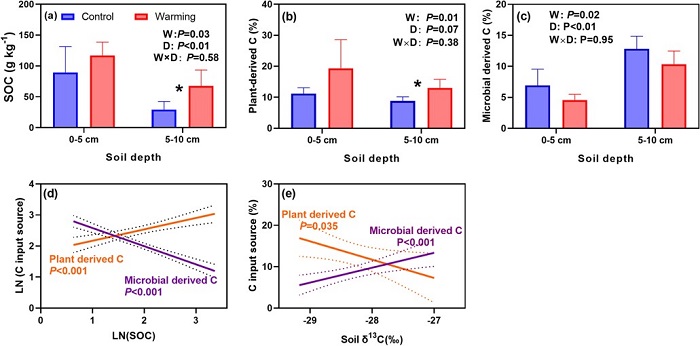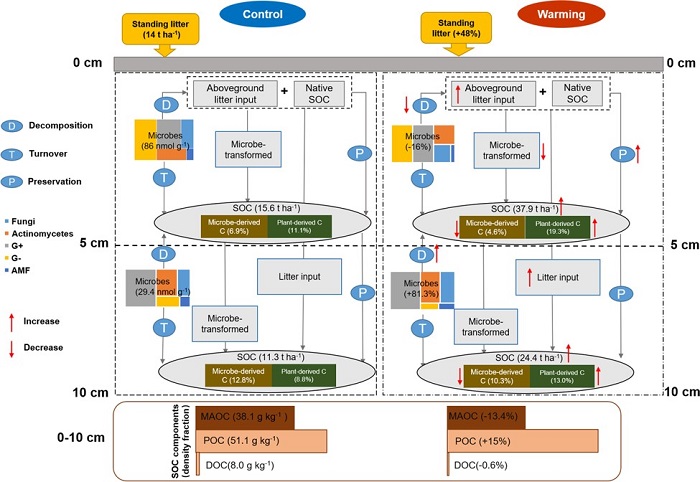

Warming affects the carbon cycle process of the terrestrial ecosystem by affecting the counterbalance between carbon input and output, and the stability of the carbon pool. Although most studies showed that warming decreased soil organic carbon (SOC) content, there is still great uncertainty in the direction and extent of the warming effect on SOC. Moreover, the internal driving mechanism is uncertain, which restricts our understanding of the carbon cycle process of terrestrial ecosystems under the scenario of climate change.
The researchers of the restoration ecology group of South China Botanical Garden, Chinese Academy of Sciences conducted their study on a long-term soil warming experimental platform (> 10 years) in Hiroshima, Japan. They studied the impact of long-term soil warming on the size, structure, and stability of SOC pool in an East Asian monsoon forest, and explored the ecological mechanism of the impact of warming on SOC pool from the perspective of microbial transformation and mineral protection. The results showed that the continuous warming of 10 years significantly increased the SOC content in 0-10 cm soil, and the increase in SOC content mainly came from plants. The plant-derived carbon (lignin and phenolic substances) increased by 60%, and the microbial-derived carbon (amino sugar) decreased by 27%. The effect of warming on the stability of soil organic carbon pool was not significant. Our results showed that the soil of East Asian monsoon forest could still accumulate SOC under the background of temperature rise. The inconsistency between the results of this study and those of other regions also points out that it is urgent to strengthen the comparative study of different biota in the future. Further exploring the pattern and driving mechanisms of plant-derived carbon and microbial-derived carbon regulating SOC pool in response to temperature rise are also needed.
The study was recently published in Plant and Soil which was titled “Ten years of warming increased plant-derived carbon accumulation in an East Asian monsoon forest”. It was supported by the National Natural Science Foundation of China and the Science and Technology Project of Guangzhou. More information could be found at the website: https://doi.org/10.1007/s11104-022-05642-8



